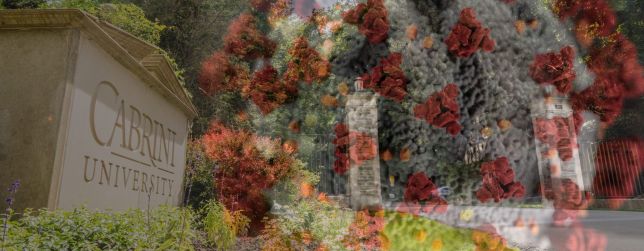
When the governor of Pennsylvania, Tom Wolf, closed all elementary schools on March 16, which was just for 10 days, to monitor COVID-19, Cabrini education majors were not ready for the news that turned out to be that schools would be shutting down for the rest of the semester.
This led to the concerns for the students who still needed to fulfill their student teaching and field requirements for their major.
“Schools switching to online instruction has most certainly interrupted my fieldwork,” Diana Whitaker, a senior early childhood education major, said.
Due to the rest of the school year being shut down for in-person instruction amid the coronavirus pandemic that has killed over 100,000 people, it has affected more than 1.7 million students in public and private K-12 schools. Students had to continue their learning online.
This affected students, teachers as well as students studying to become teachers.
“I didn’t get the chance to teach a lesson for this grade/class, which is ultimately talking away practice before my student teaching,” Shannon Agnew, a junior early childhood education major and special education minor, said.
“We’re still getting the full one credit as long as we complete the assignments; it’s harder though because we still have to complete all the same assignments with the four weeks we had in the field versus the full 10 weeks we should have had,” Agnew said.
“I was only able to complete seven weeks instead of 13. In the last six weeks I have been completing assignments from my Student Teaching director and supervisor in order to stay in compliance with the PA Department of Education,” Whitaker said.
“Some student teachers were lucky enough to be granted access to their students’ online learning. I wasn’t as lucky. I completed lessons and activities for my kids and sent them to my co-op teacher to assign them. I wasn’t allowed access to my classes’ Google classroom or Nearpod work website. I kept in contact with my co-op [teacher] about lessons being assigned and anything I could do to help.”
In an email sent by Donald DiPaulo, the associate director of field & student experiences, he reached out to the education department in which it stated that students are expected to use the field observations they have done so far to complete the first five assignments in the field.
Second, the faculty worked on alternative online assignments that students used to complete the final assignments for their field courses, which were due by the end of the semester. An email was also sent to inform everyone when the new curriculum was to be uploaded to Cabrini Learn and ready for students to begin working on the final assignments.
Students also received full credit for field experience courses this semester and graduation requirements were met, provided that all of the assigned course work was completed online.
“Even though I am not losing credits, I am losing experience in the classroom and working with children, but I am making this up by working on assignments with the children I nanny. even though I’m not necessarily ‘planning’ the lessons, I have to help teach them and create activities to help them learn,” Agnew said.
“I do not want to look at this misfortune as a “set back” because I feel as though my seven weeks were rich in value,” Whitaker said.
“I feel as though I lost time in expanding my chances to try new things. I made the best of the time I was given. I am confident in my teaching that I am prepared to have my own classroom. I hope that employers understand the situation and do not think less of the graduating class of 2020 due to our experience being cut short.”


